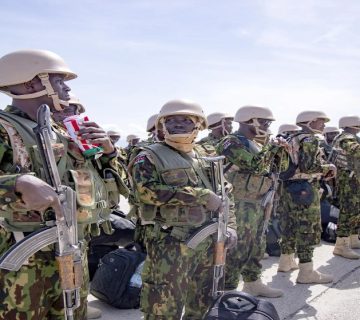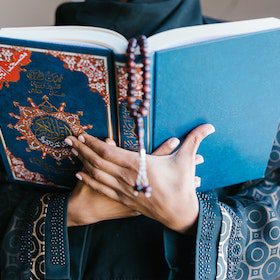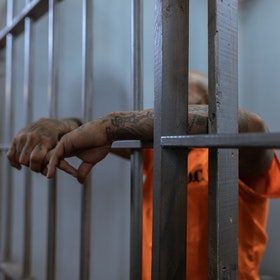In December 2015, Salah Farah, a Muslim teacher, tried shielding Christians during an al Shabab attack on a bus travelling from Mandera to Nairobi, Kenya. Farah, who had ostensibly refused to be separated from Christian passengers during the terror attack, was fatally shot. He later succumbed to his wounds while receiving treatment at Kenyatta National Hospital, Nairobi. Farah’s heroic deed reverberated across the nation (and the world) igniting intense feelings of patriotism. He became a symbol of unity and an agent of coexistence at a time when Kenya was facing increased attacks from the Somalia-based terror group, al Shabab. Farah paid the ultimate price but he changed the perception of non-Muslims towards Muslims. Farah was posthumously honoured by President Uhuru Kenyatta who awarded him the Order of the Grand Warrior for his act of courage. Because of his gallant action, a section of Kenyans elevated him to martyrdom underscoring the impact of his act in view of the terror group’s objective of pitting Muslims against non-Muslims in the country.
Farah’s story is one of the numerous progressive anecdotes that have significantly contributed to peaceful coexistence in Kenya in the last five years. For instance, in the P/CVE space, a sustained blend of soft approaches including a campaign that uses ideological revision (or Murajaatil fikriyyah) technique recently deployed by BRAVE (Building Resilience Against Violent Extremism) have been proven to diminish the influence of terror groups in their quest to radicalize and recruit youth into violent extremism. Murajaatil fikriyyah entails the process of revisiting and disambiguating common meta-narratives misused by terror groups such as the concept of jihad from a religious perspective. Such activities and campaigns have increased the resilience of at-risk population segments and freed them from the divisive and toxic influence of terror groups in the region. Such are the stories of three young men, J Salim, a young man from Majengo Nairobi; Mohammed and Coaches from Isiolo; all of who were radicalized (albeit separately) into violent extremism but who have since reformed. They now volunteer as mentors to at-risk youth in their respective places. They are now PCVE champions with immense influence at the community level.
In Mombasa, Masjid Musa which was once a recruitment hub for al Shabab has been transformed tremendously. At the height of the controversy surrounding the mosque between 2012 and 2014, this place of worship was a no-go zone for moderate sheikhs, leave alone their events such as darsa (lectures), sermons, or seminars. The sermons of the violent extremist ideologues, the likes of Abud Rogo, Sharif Abubakar Makaburi, sowed seeds of discord and sought to divide Kenyans along religious lines while pushing youth from areas such as Majengo to commit acts of terrorism. However, collaborative efforts primarily composed of religious leaders, non-governmental organizations, security agencies, civil society organizations, and P/CVE experts in a multiagency framework have seen a remarkable transformation and rehabilitation of the mosque. As it stands, it is revitalising to see moderate sheikhs and imams conduct prayers without fear – an action that could not be tolerated a few years ago. The dividends of emancipation of Masjid Musa were felt recently when Sh. Dr. Tarék Elgawhary, a Jordanian US-based moderate sheikh through the invitation of BRAVE, visited the mosque and delivered a series of lectures without fear of interruption by the rowdy violent extremist youth which was the norm in the past. All these conscious efforts have brought about a peaceable environment not only for the locals but for every actor involved in P/CVE in the county.
In addition to the accomplishments and positive transformation of Masjid Musa, there has also been a strong-willed determination to rout out radicalization into violent extremism and foster a climate of peaceful coexistence in Kwale. Most places of worship had been overrun by radicals who had turned them into radicalization and recruitment centres. Kibundani mosque in Ukunda was one such place. Reports indicate that tens of youth had been radicalized through this mosque and it was considered an exclusive zone for radical sheikhs, and ‘prohibited’ any religious or political leaders who had alternative views. Today, the mosque has been liberated from extremist elements who had a firm grip on it. Sheikhs from BRAVE have paid several visits to the mosques and delivered darsa and sermons without interference.
The foregoing efforts of peaceful coexistence – and many more that have had a significant impact but are not mentioned here – should be identified, appreciated, and amplified by various P/CVE stakeholders in order to realize sustainable peace in the country. Harmonious coexistence sustains many aspects of human life that transcend religion or culture. However, it is imperative to note that terror networks such as al Shabab thrive in dividing people along religious lines. Kenyans should be more vigilant as far as radicalization into violent extremism is concerned. Come, let’s build a peaceful Kenya!
Daniel Iberi is the Strategic Communications Manager at the HORN International Institute for Strategic Studies, a think-do tank that focuses on, among other issues, security in the Greater Horn of Africa region



